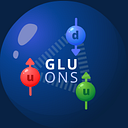Short Essay: The Hegelian Philosophy
From the book “Hegel’s Phenomenology of Spirit”
Do you ever wonder why our social structure exists as it is? Why do people always want to be part of a community? Or why does our society stuck in the constant of a sickening endless loop? Is our sense of consciousness related to all of this?
When you ask this to several people from several different backgrounds, the answer varies. This is because data can’t be separated from the person holding it. Our perceptions will always color the information we carry and so data is never clean. Putting values on details and past experiences drives people away from objectivity. In other words, perception defines reality and everyone sees things fundamentally differently.
So in the midst of a society that follows the existing social structure without further questioning, Hegel invites us to challenge ideas that have no rational proof to back them up. We are invited to disconnect ourselves from our environment for a moment in order to define reality from a new perspective and understand how the world around us works: why society works as it is and what motivates people in doing so, which he calls “the manifestation of spirit”. It is important to note that Hegel’s definition of spirit is different from the theological understanding, spirit manifests itself in the sense of consciousness.
In Kantian theory, the truth is defined by the interior of the phenomena which creates a priori of reason (e.g. people do things because they have intention). In Hegelian theory, this is not possible because there are no such things as themselves.
So how do we define what is true?
Hegel argues that the connection between two objects is more real than the objects themselves, therefore, the truth can be derived only from the direct experience of the objects. That is, our experiences tell us more about us than how we personally think about ourselves. We don’t do things because we are motivated by reasons, we do things as a manifestation of ourselves in the world. It is ultimately an inevitable process, an instinct as I might say.
Spirit’s determinacy manifests itself through mutual recognition, this is why there is the movement of individuals into families, communities, then to a constitutional state. This is the ultimate movement of spiritual manifestation.
Hegel’s Influences
Hegel challenges the social structure from a historical perspective as a manifestation of the soul in the modern individualistic world; he presents his opposition to old-world idealism such as reductionism, utilitarianism, and various others. His work is dissociating in the sense of liberating, especially for people who feel trapped in an endless loop of our flawed society. This is the idea that influenced Karl Marx’s notion of increasing consciousness through purposive activity in a political sphere.
The Phenomenology of Spirit is Hegel’s first book that highlights the dynamics of human experience from its simplest beginnings in consciousness through its development, but it speaks more than just the social structure. Hegel defines a new concept of consciousness as a sense of certainty, it is a philosophy of contradiction. Hegel argues that things exist by adding contradiction, for every time we assert something at the same time we’re negating others. It tells us the reality not in the point of view of “subjects and objects” but in “subjects and subjects”.
What I highlight in this writing is only a fraction of Hegel’s work. His work includes a lot more such as his historical dialectics, presuppositional, and other meta terms that sound rather Buddhistic than logical (e.g. things exist as it is), some I might completely disagree with for disapproving empirical science, but some are quite enjoyable to look at as a perspective change.
Conclusion
His work assists a lot of people to make sense of the world around them. It is worth reading and quite rewarding. However, his presentation is really difficult to understand. He was often coming up with his own language to describe a new concept he was thinking through. His writing is in the specific context of ideas framed by other philosophers (Kant, Fichte, Schelling, etc.) with the assumption of the reader’s familiarity with those philosophers. I think “Hegel’s Phenomenology of Spirit” is a suitable book for those who already have philosophical foundations and are interested in critiquing reality and social structures in more depth.
